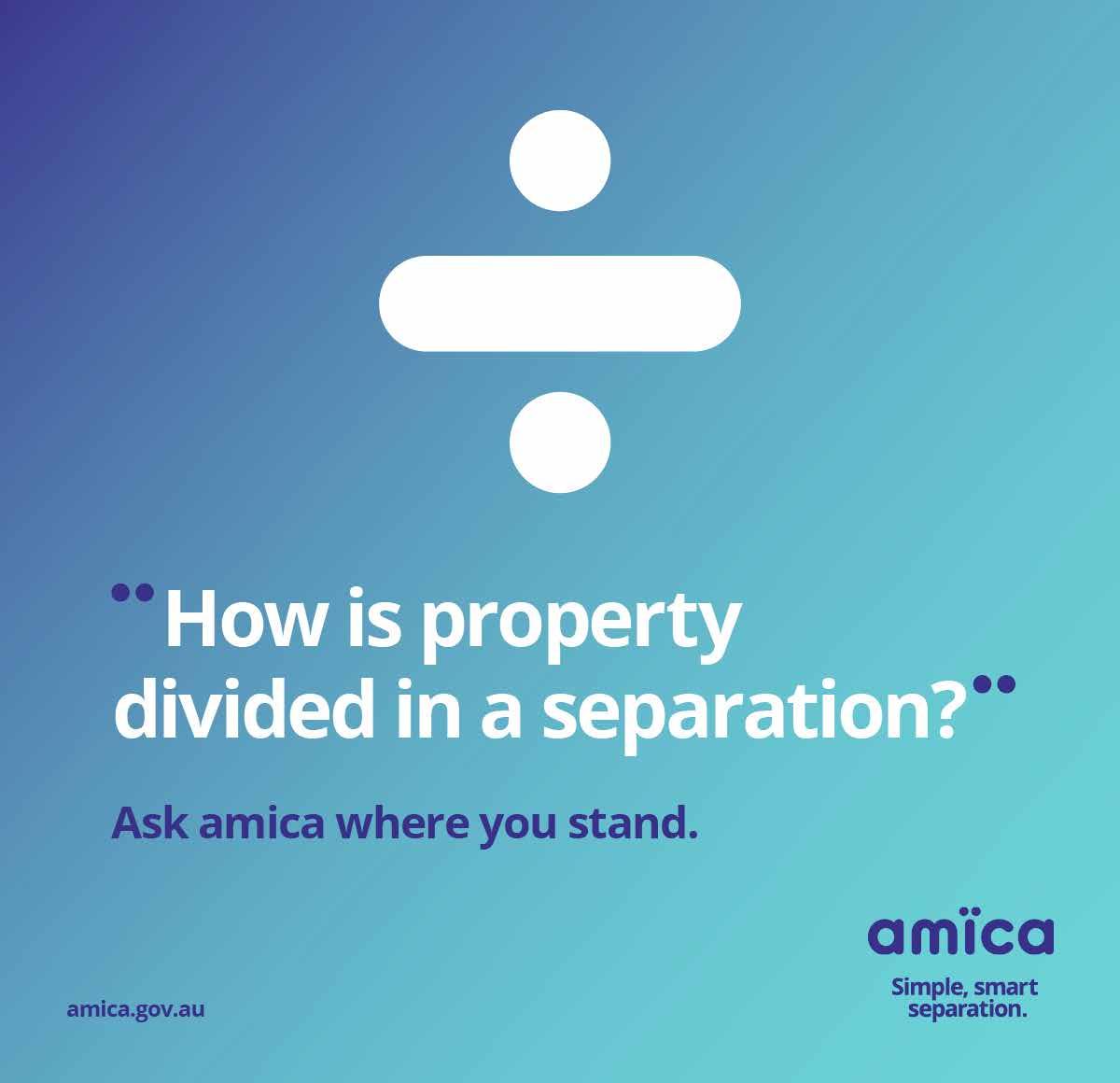
9 minute read
Can AI help resolve family law disputes? Computer says Yes By Gabrielle Canny
CAN AI HELP RESOLVE FAMILY LAW DISPUTES? COMPUTER SAYS YES
GABRIELLE CANNY, AMICA PROJECT CHIEF AND DIRECTOR, LEGAL SERVICES COMMISSION
Advertisement
In the 21st year of the 21st century, many Australians don’t simply go online - they live online. They find love online, they work online, they shop online and socialise online. And when relationships break down, they want online help to resolve their family law disputes.
In response to that community demand, SA is now at the forefront of a ground-breaking national service combining artificial intelligence and family law. This initiative exemplifies the transformative impact of technology on legal processes. However, this new digital service is not a magic bullet that will solve all the challenges facing Australia’s family law system and all the difficulties confronting separating couples.
The service is called "amica" and it empowers separated couples to reach amicable agreements online regarding property and parenting issues. It is a mobile-first tool that uses artificial intelligence and other smart technology to help people resolve disputes themselves and record their agreements in plain language on a secure platform. It also helps them create applications for family court consent orders if they wish to. amica provides free information throughout its site about issues regarding separation; it uses conversational language and avoids legal jargon. amica complements existing family law services and resources, and guides people to specialist legal help in situations where it is required. Throughout the site, it encourages people to seek legal help if they require legal advice or further information. amica was created in SA by the Legal Services Commission on behalf of National Legal Aid with $3m in funding from the Commonwealth AttorneyGeneral’s Department. (National Legal Aid represents Australia’s eight legal aid commissions. There’s one in each state and territory and, collectively, these Commissions are the largest providers of family law assistance in Australia.)
Legal Aid Commissions across the nation provided data and input to assist amica’s development. Its design was also guided by direct input from everyday Australians who have been through everyday family law disputes. Their insights were invaluable. They outlined what they wanted in an online service that’s designed to help ordinary Australians get through what is, for many people, one of the hardest times in their lives.
This new service, located at amica.gov. au, responds to community demand for digital solutions in the family law sector. Each year there are more than 48,000 divorces and 105,000 applications to family courts regarding family breakdowns. The disputes that accompany them can last for years and cost many thousands of dollars. Independent social research reveals 78% of people with family law problems are interested in using a platform of this sort to resolve their disputes. amica can be used by a wide crosssection of people dealing with family law issues. However, its dispute resolution feature - the online tool that helps people reach agreement - is best suited to separating couples who have a reasonably amicable relationship and a willingness to communicate and negotiate online. amica is not suitable for all situations and cannot replace the expert assistance provided by lawyers and the family courts. But it can empower many couples to better manage their separation and reduce the number of areas in which they disagree. By reducing pressures on courts and Legal Aid services, amica can help these bodies focus more closely on matters that cannot be solved online.
FEDERAL BACKING & NATIONAL RECOGNITION
amica was created with Federal funding to cut the cost, stress and complexity of separation. The Family Court of Australia and the Federal Circuit Court were regularly consulted during its design.
Commonwealth Attorney-General Christian Porter has encouraged amica’s development from concept to rollout, and he launched it on 30 June 2020.
“I am very excited about the potential of this tool,” Mr Porter said.
“The government is absolutely committed to improvements in the family law system that will make the system cheaper, faster and less stressful for separating couples and their children. And that’s exactly what amica aims to do. Through smart technology it will support people to work out parenting arrangements, to split their assets and record their agreements in plain language.” amica has attracted Australian and overseas attention. It won the national iAward for Government and Public Sector innovation (the iAwards are presented by the Australian Information Industry Association, the ICT sector’s peak body). As part of that national competition it also won the SA and NT Government and Public Sector Solution of the Year award, plus the SA Premier’s iAward for Public Sector Innovation.

HOW AMICA WORKS
amica delivers its assistance in two key ways. Firstly, a website that anyone can use to get information about family law issues. And secondly, a digital tool within that site that enables separating couples to negotiate online - about parenting and property matters - and reach agreement about those issues. amica guides the couple through a step-by-step dispute resolution process. FAMILY AND DOMESTIC VIOLENCE
Family violence is too often a feature of family law disputes. As a result, amica incorporates key features to protect vulnerable individuals who are dealing with issues relating to separation. amica’s dispute resolution feature is not appropriate for all couples (e.g. situations involving family or domestic violence) and it screens out people whose circumstances are not suitable for amica. It also incorporates sentiment analysis technology that detects inappropriate comments and stops them being communicated to a former partner. The technology also informs the person making the remark that their language is not appropriate and will not be permitted. amica does not leave separating couples on their own. At many stages of its online dispute resolution process it provides warnings about coercion or pressure to settle on unfair terms. It also provides information about professionals and services that can help the parties sort out particular issues. This ensures they have access - if required - to mediators, lawyers, counsellors and other professional support.
SIGNING UP TO AMICA
amica begins by asking the user a series of questions so the user can determine if the service is right for them. Once a user signs up for amica, the system sends an email to their former partner inviting them to sign up and take part in amica’s dispute resolution process. amica uses two-factor authentication (involving SMS and email validation) to avoid impersonation or coercion by either user.
QUESTIONS & ANSWERS
To help users reach a written agreement, amica puts a series of questions to them. Users have the opportunity to provide additional information regarding their answers, and can engage in an online dialogue with the other party about the details they are providing.
Users can upload supporting documents. This feature helps to provide a factual base for statements that are made by the parties (e.g. regarding the value of particular assets) and can lessen the potential for disputes. It is designed to encourage full and frank disclosure regarding the assets and liabilities of the relationship.
The content provided by users is presented to them as proposed statements that users can consider, discuss and agree on. These agreed statements form the final document (the Agreement).
HOW AI HELPS RESOLVE PROPERTY DISPUTES

day – and it plays a key part in amica by helping people to reach agreement about the division of their assets. amica provides a suggested split of a couple’s assets after the AI takes into account three factors: the couple’s assets and circumstances; the types of agreements commonly reached by other couples in similar situations; and how courts generally handle disputes of this nature. If the parties agree with the suggested property division, they can accept it and move on.
The suggested property division is designed to guide the negotiation process; it is not meant to replace legal advice. Users have the option to either agree to the suggested division or use it as a guide to formulate their own agreed percentage split. If a user rejects the percentage split suggested by the AI and instead proposes an alternative split, they are required to provide their reasons as to why they believe their suggested split represents an appropriate division of the assets. Further, if both parties reject the AI suggestion and propose an alternative split that is 20% or more outside amica’s suggested division, they will not be able to use amica to finalise their agreement.
Once users agree to a suggested percentage division of assets, they can put proposals to one another regarding how that division of money and property will take place (i.e. who gets what). Either party can nominate which assets they wish to keep, transfer or sell. A summary of the proposal is sent to the other party.
AGREEMENTS & CONSENT ORDERS
Once users reach agreement about the division of their property, amica can produce an agreement that reflects the agreement reached. If users choose to formalise the agreement, they can use amica to produce an Application for Consent Orders for filing in the Family Court. amica takes them through a guided process that collects the additional information that is required for Consent Orders. Subject to the agreement of both users, amica will then produce the completed Application for Consent Orders and Consent Minute of Order. amica also gives users information about how to sign and file the Application with the court. PARENTING ARRANGEMENTS
amica’s dispute resolution process helps families work out parenting arrangements for children. This process – focusing on the best interests of the child - does not involve artificial intelligence. amica’s technology is all based around the needs of the user. For example, it has an interactive calendar that helps parents to reach agreement, and record their agreement, about the care arrangements for their children. This feature enables users to easily select their preferred days and nights with their children. amica generates a Parenting Agreement for users, and also provides the option of adding an electronic signature and producing a Parenting Plan.
HOW MUCH?
There is no charge for the information amica provides about issues regarding separation and family law. Modest fees are charged (between $165 and $440 per couple) for agreements and applications for consent orders. These fees fund ongoing maintenance of this service and are waived for users who receive a Centrelink income support payment.
In amica’s first six months: almost 2,000 matters have been commenced on amica; more than 500 asset division suggestions have been provided by its AI; more than 220 property agreements have been finalised; more than 120 Parenting Plans and Agreements have been finalised; 75 consent order court application documents have been prepared; and the amica site has received more than 185,000 page views.
A CHANGE FOR THE BETTER
When it comes to family law, Australia must embrace various solutions and combine the specialist knowledge of people from a range of disciplines. amica was created by consulting family lawyers, digital designers and everyday Australians with lived experience of divorce. amica arose from that collaboration and consultation. It adds to existing services and gives separating couples more options, more information, more guidance and more ways to resolve their problems. This is good for families, good for courts and good for the wider community. B







